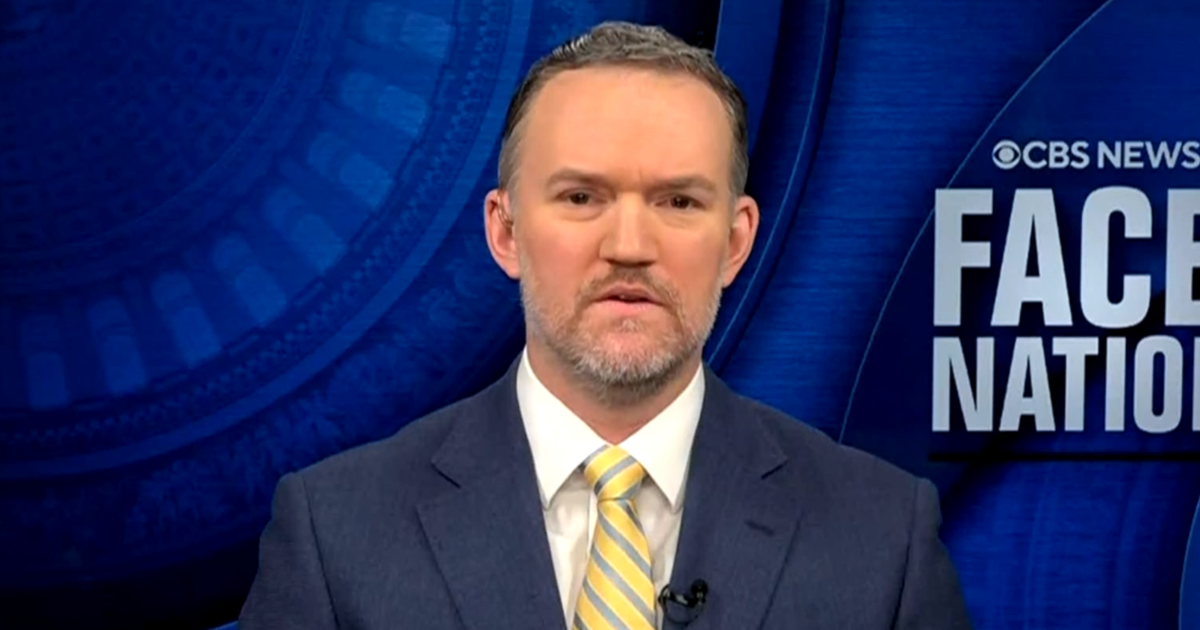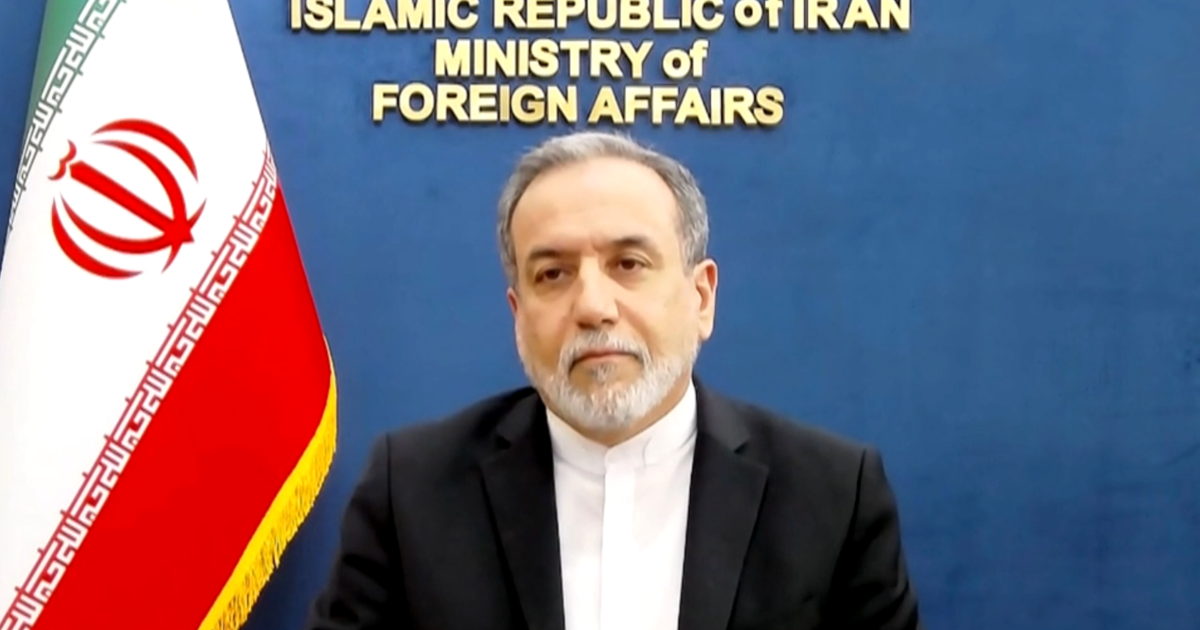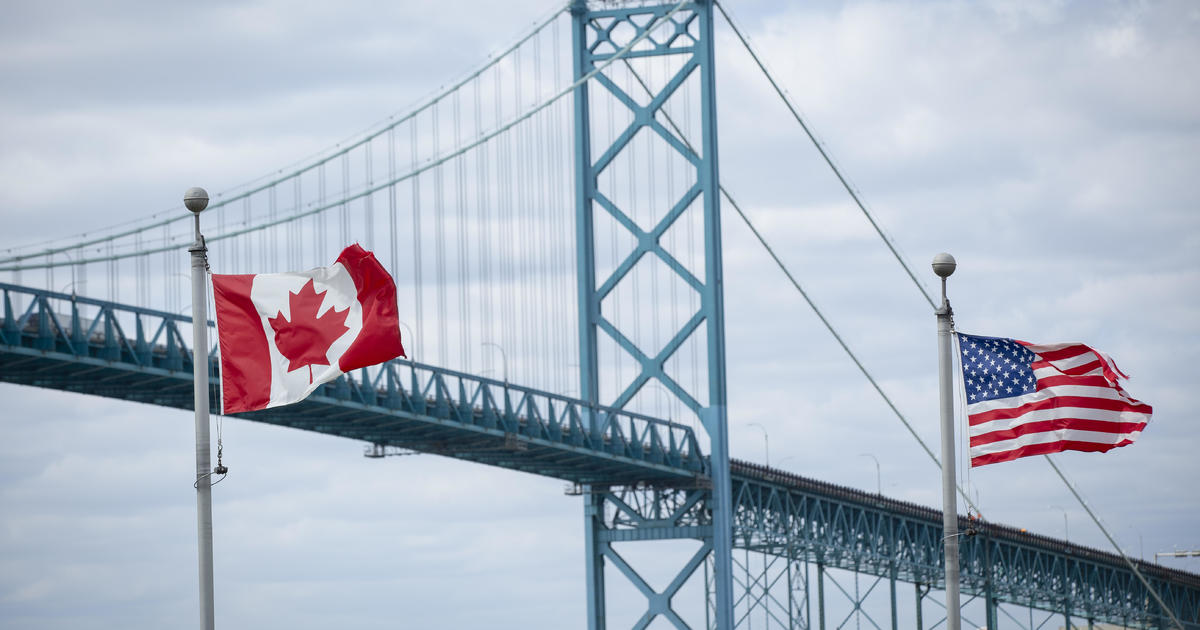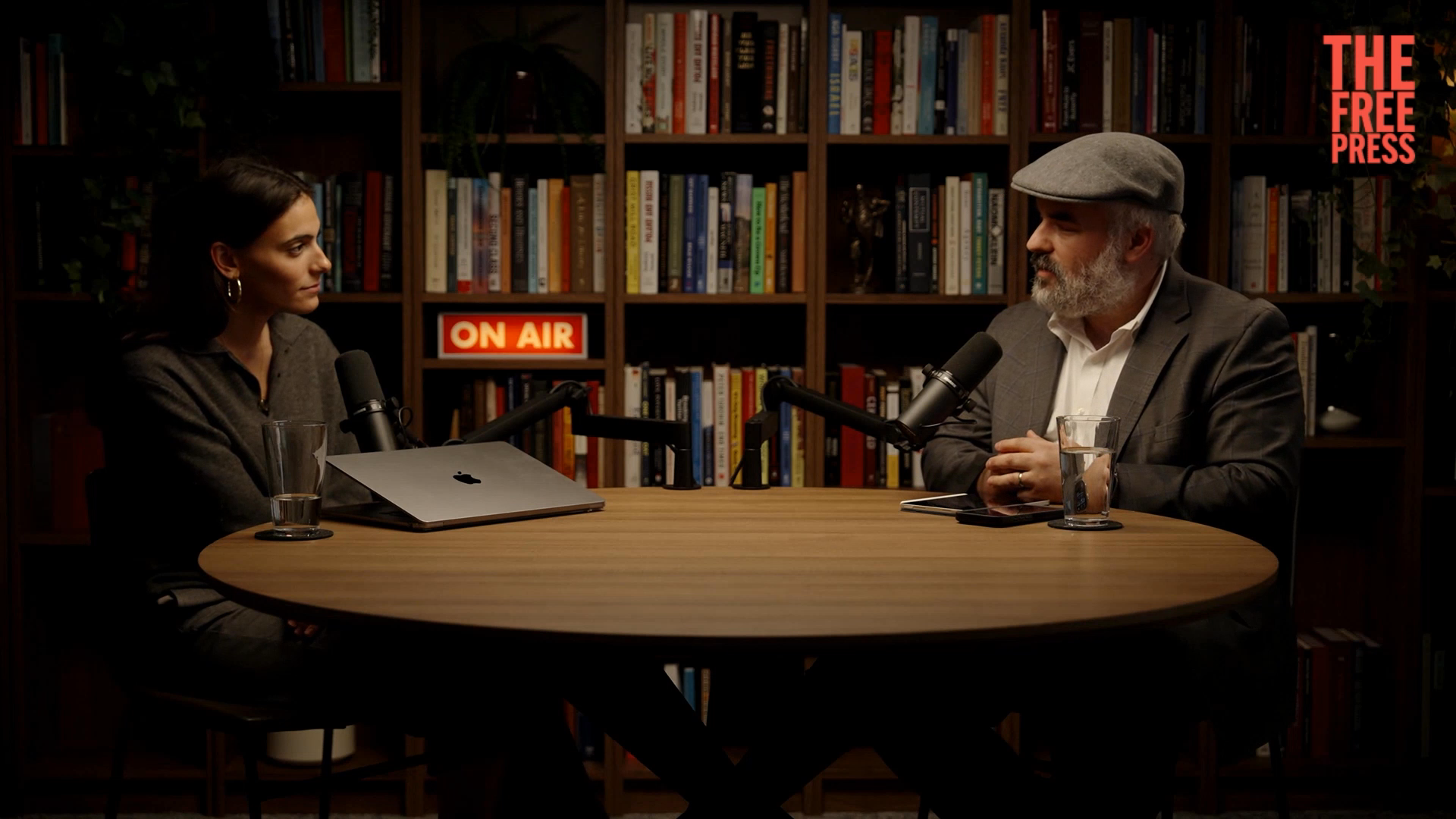Transcript: Israeli ambassador to the U.S. Michael Herzog on "Face the Nation," Oct. 8, 2023
The following is a transcript of an interview with Israeli ambassador to the U.S. Michael Herzog that aired on "Face the Nation" on Oct. 8, 2023.
MARGARET BRENNAN: Our Holly Williams from Israel. We're joined now by the Israeli Ambassador to the United States, Michael Herzog. Mr. Ambassador, first, I want to offer you our condolences.
AMBASSADOR MICHAEL HERZOG: Thank you very much. Appreciate it.
MARGARET BRENNAN: We know that your Prime Minister is promising a sustained campaign. Do you have any sense of how Israel will define success?
AMBASSADOR HERZOG: Well, Israel is at war. Yesterday, we were attacked by a terror organization. They infiltrated Israeli territory and killed hundreds of Israelis. At least 600 were butchered yesterday, including whole families, elderly, women, children, babies were taken out of the mothers laps and murdered. This is war and we have to fight that war and win it. We have to destroy the Hamas war machine. You know, in war- back in war- we have to fight it.
MARGARET BRENNAN: How is it that Hamas managed to take Israeli Defense Forces by surprise? Did they shut down communications?
AMBASSADOR HERZOG: Well, it was a surprise attack. There was definitely an element of surprise. But I think we'll have enough time to investigate that once we conclude that war in victory.
MARGARET BRENNAN: You said you want to destroy the Hamas war machine. Hamas is armed and funded by Iran. The Biden administration says they don't have evidence that Iran was linked to this particular attack. Does Israel have evidence they were?
AMBASSADOR HERZOG: Well, we suspect Iranian hands behind the scenes, as you know Hamas and Iran are closely tied. Iran provides material support, funding, weapons to Hamas. They are tied in what they call the Axis of Resistance, of course, resistance to the existence of the State of Israel. They are part of the same coalition. So, as far as we are concerned, this is an Iranian led coalition and we suspect that Iran is involved.
MARGARET BRENNAN: Does that mean Israel will take the fight to Iran?
AMBASSADOR HERZOG: I'm not going to say what exactly Israel is going to do. But I will just say that whoever strikes Israel, we'll strike back.
MARGARET BRENNAN: Sir, this is just stunning to see what has happened in the past few hours. But there are questions within Israel, as you know about how such a strong military was taken by surprise. There has been a massive expansion of Israeli settlements in the West Bank area, and with that a buildup of forces to protect them. The former ambassador to Israel, Martin Indyk, has publicly raised the question of whether that's why the border towns over and around Gaza were left unprotected. Were they? Was that a factor?
AMBASSADOR HERZOG: Well, I don't buy that argument. I think that analogy is irrelevant to the current situation. Yes, it was a surprise attack, but I don't think it has much to do with the fact that the IDF was preoccupied in the West Bank. They prepared a surprise attack, they reached the border fence, they came with paragliders, and through the sea. And as I said, there will be sufficient time after the war to investigate what exactly happened. Right now, we are at war and we have to fight that war and win it. We are attacked by a terror organization funded by Iran. And that's where we are right now.
MARGARET BRENNAN: But you have said that perhaps Hamas miscalculated by looking at all the domestic problems Israel has within its own politics right now. Do you--
AMBASSADOR HERZOG: --Absolutely.
MARGARET BRENNAN: Do you think that that was actually, though, a factor when it comes to military readiness? Did it leave your forces vulnerable?
AMBASSADOR HERZOG: They may have- maybe they were under the impression that given the internal debate in Israel, that Israel is weakened so that they can provoke us. They thought so, I think they're definitely mistaken. You have to know Israelis to understand that when Israel is under attack, Israelis close ranks and they fight together. And there is no opposition coalition right now in Israel. There's no debate. All reservists are volunteering. We- our embassy is flooded with phone calls from people who want to go back to Israel and fight Hamas. So in that sense, I think it was a gross miscalculation on their part.
MARGARET BRENNAN: But did it impact readiness? Because there were concerns of, you know, your reservists having objections, political objections, and refusing to serve.
AMBASSADOR HERZOG: No, it did not impact readiness, I think Israel is strong. As I said, Israelis are closing ranks right now and we will fight back.
MARGARET BRENNAN: In- back in 2006, you had a soldier taken captive and held in Gaza. It took over five years to get him back. And Israel did so in exchange for 1,000 Palestinian prisoners. At what cost is Israel prepared to get these new hostages out?
AMBASSADOR HERZOG: I think it's premature to discuss that. I think we- we just attacked yesterday. We understand that there are probably dozens of kidnapped Israelis and others in the hands of Hamas. We'll have to deal with it in due time. The whole issue of hostages is a very sensitive issue. I think you know it from your situation, the US, and we- we've had experience in that in the past. It's a very complicated situation. But I think it's premature to discuss any deals or prices or whatever. Right now we are at war.
MARGARET BRENNAN: Are there Americans among those hostages?
AMBASSADOR HERZOG: I understand there are, but I don't have details.
MARGARET BRENNAN: You don't know the numbers or ability to retain them?
AMBASSADOR HERZOG: No.
MARGARET BRENNAN: What is it that Israel and your Prime Minister is asking of the American President right now?
AMBASSADOR HERZOG: So, it was a very good phone call between President Biden and our Prime Minister yesterday. The U.S. administration sounded a very strong voice of support for Israel, from the nation for the terror attack and support for Israel's right to self defense. We are in discussions with the administration about the situation and about our needs. I want to take the opportunity to thank the administration for the solid support of Israel and its rise to self defense.
MARGARET BRENNAN: And before I let you go, how is Israel going to allow some of those Palestinian civilians who are trapped within Gaza to escape so that they aren't victims of these strikes?
AMBASSADOR HERZOG: Well, the fact of the matter is that Hamas uses civilians as human shields.
MARGARET BRENNAN: Yes.
AMBASSADOR HERZOG: Unlike Israel, we use our weapons to defend our population. They use a population to hide the weapons behind them. So it's a very unfortunate situation. We cannot allow terrorists impunity just because they hide behind civilian population. We give the civilian population due notice and warnings before we strike- strike any military target and will continue to do so. And to the extent that the population of Gaza is suffering, I think the address for this question is Hamas.
MARGARET BRENNAN: Ambassador, thank you for your time, and our condolences once again.
AMBASSADOR HERZOG: Thank you very much.



